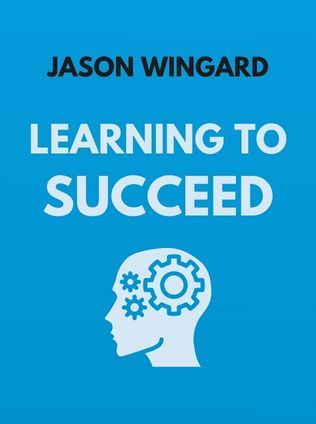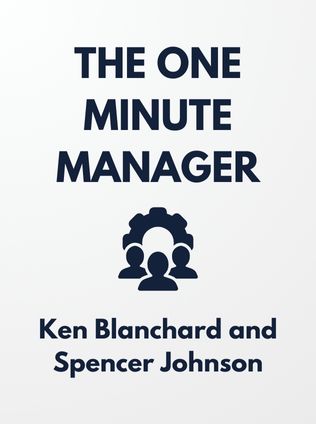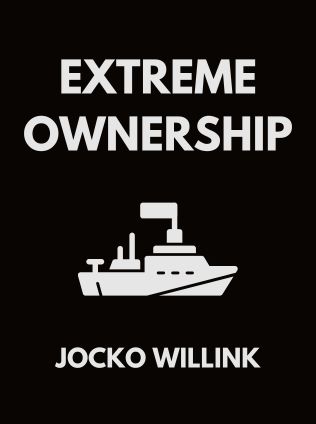
Learning to Succeed
Rethinking Corporate Education in a World of Unrelenting Change
By Jason Wingard
Published 05/2015
About the Author
Jason Wingard, Ph.D., is a distinguished expert in corporate education and leadership development. As the Managing Director and Chief Learning Officer at Goldman Sachs, he is responsible for the strategy and implementation of learning and leadership solutions for the firm's global workforce. Wingard is also the President and CEO of The Education Board, Inc., a management consulting firm. Previously, he served as Vice Dean of Executive Education and Adjunct Professor of Management at the Wharton School. His extensive experience in both academia and the corporate world positions him as a leading voice on the importance of organizational learning.
Main Idea
In his book "Learning to Succeed: Rethinking Corporate Education in a World of Unrelenting Change", Jason Wingard presents a compelling argument for the necessity of becoming a dynamic learning organization to stay competitive in today’s fast-paced global business environment. Wingard builds on Peter Senge's concept of the learning organization by introducing the Continuous Integration of Learning and Strategy (CILS) model. This model emphasizes the integration of corporate learning with strategic planning to ensure companies can anticipate changes, adapt quickly, and thrive. According to Wingard, corporate learning is not just an intangible concept but a critical shift achieved through careful implementation.
Table of Contents
- Introduction
- The New Normal
- New Business Environment
- CILS as Vital
- A Programming Framework
- Understanding Barriers to Change
- Return on Learning (ROL)
- The Competitive Edge
- Integration in Practice
- Executive Perspective
Introduction
Companies are in a constant state of flux, responding to market shifts, technological advancements, and other external factors. Success in the long term requires a dedication to strategic goals that align with the ever-changing business landscape. For Wingard, the key to sustained success is a commitment to corporate learning initiatives. These initiatives drive a company's ability to stay ahead of the curve and maintain competitiveness. In essence, businesses must become learning organizations to thrive. A learning organization is defined by its capacity to adapt, innovate, and continuously improve through the integration of learning into its strategic processes.
The New Normal
The global business environment has undergone significant transformation. Traditional operating models no longer apply, and companies of all sizes must now keep pace with unprecedented change. This requires an organization to learn from its own experiences and those of its competitors. Corporate learning, therefore, becomes the cornerstone of success in this fast-paced, data-driven world.
Expanding Global Market
The global marketplace has become highly competitive, necessitating an understanding and adaptation to cultural differences and similarities. Companies must leverage communication and cultural practices to gain a competitive advantage. For instance, businesses that diversify and decentralize their operations need technologies to manage and support these dispersed enterprises effectively.
Shorter and Unpredictable Business Cycles
Modern businesses face constant pressure to reduce the time-to-market for new products and services. This requires integrating time-saving technologies and methodologies into product development and marketing. Flexible systems that can respond to unexpected scenarios are critical for maintaining a competitive edge.
Increased ROI Pressure
In a highly competitive era, companies demand immediate and strong returns on investments. This focus on reducing operating costs and optimizing workforce productivity often overshadows long-term objectives. Thus, executing short-term priorities while planning for long-term goals is essential for sustained success.
CILS as Vital
The Continuous Integration of Learning and Strategy (CILS) process is pivotal for long-term business success. It establishes the relationship between strategic planning and corporate learning as fundamental partners. This integration ensures practical strategic goals and effective resource allocation. Wingard emphasizes that CILS is not just an optional strategy but a vital component of contemporary business management.
Sign up for FREE and get access to 1,400+ books summaries.
You May Also Like
I Am Malala
The Story of the Girl Who Stood Up for Education and Was Shot by the Taliban
By Malala YousafzaiThe Lean Startup
How Today's Entrepreneurs Use Continuous Innovation to Create Radically Successful Businesses
By Eric RiesWho Moved My Cheese?
An Amazing Way to Deal with Change in Your Work and in Your Life
By Spencer Johnson, M.D.Make Your Bed
Little Things That Can Change Your Life...And Maybe the World
By William H. McRavenThe Ride of a Lifetime
Lessons Learned from 15 Years as CEO of the Walt Disney Company
By Robert IgerThe Hard Thing About Hard Things
Building a Business When There Are No Easy Answers
By Ben Horowitz



















